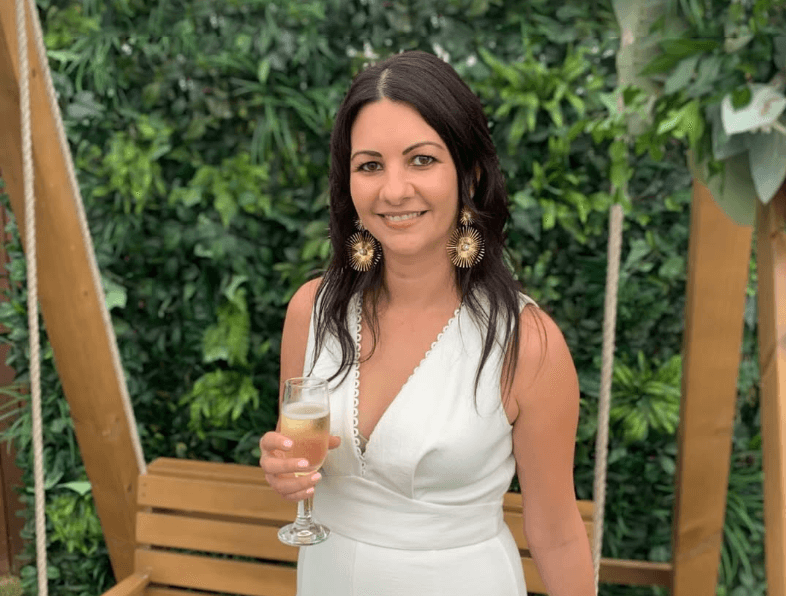Katie: Living with Hope And MS

It was only 4 months after Katie had given birth to her twin daughters that she was diagnosed with multiple sclerosis (MS). Living in the UK at the time, Katie was feeding her daughters in their nightly routine when she noticed her toe going numb. Thinking it was just the UK cold, Katie didn’t think too much of it and went to bed. But the next morning it didn’t improve – in fact, the numbness continued to get worse, gradually making its way up her entire leg.
When Katie visited her doctor to investigate the numbness it was brushed off as sciatica. However as days passed Katie was trying to walk down the stairs when her other leg became numb, causing her to stumble. “I began to worry, and thought there is something really wrong with me,” says Katie. She went to hospital where they did a number of tests that were inconclusive, and ultimately decided to do an MRI. “In the time between getting the MRI done and receiving the results, my symptoms had gone away. I was confident that I was fine and there was nothing wrong. The doctor who gave me my results couldn’t make a formal diagnosis based on just that one instance.”
Not long after that initial appointment, Katie experienced a lumbar puncture and was finally provided a formal diagnosis of MS.
In the five years following, Katie experienced no symptoms. She moved from the UK to Australia with her family, finding that the warm Queensland weather aided in managing her MS by helping her energy levels and giving no new symptoms. However, in August 2015, Katie lost feeling in the bottom of both her feet, with the numbness slowly moving up her leg. “I really panicked because I hadn’t had any issues for so long and you don’t really know how worse it is going to get, if it will get better, or if will just keep getting worse. And how am I going to pick up the kids from school if my legs aren’t working!”
Katie took to a neurologist who provided her with information of new treatments that had become available since her first diagnosis. “He was really great with helping me to understand the importance of consistency with my medication, and the benefits of exercise and sunshine for those living with MS.” Since then, Katie has experiences symptom relapses, “One of the scariest was optic neuritis last year where I lost the vision in my right eye completely. Even the steroids didn’t help and I had to just be patient and hope that it would return.”
During her time as a radio presenter at Nova, Katie first came across MS Queensland through a radio advert. At the time, she had tried everything to forget about her diagnosis and hadn’t researched what support would be available for her MS. “I remember feeling like it was time to face it and that maybe if I could help other people by bringing it to light then it had a purpose other than hanging over me like a dark cloud.”
Katie has since become an ambassador for multiple sclerosis, attending MS Queensland events like MS Brissie to the Bay, MS Moonlight Walk and sharing her story in the hopes others don’t feel so alone in their MS journey. “I’m really hoping that by telling my story it will make even just one person able to cope with their diagnosis better and give them the encouragement that they need to see other people living their lives with MS”, says Katie. “MS Queensland helped me realise that I wasn’t alone and that there were people there that wanted to help.”
When you purchase a ticket with MS Lotteries, you’re supporting people like Katie – who embraces life with positivity while navigating the challenges of a neurological condition. Your contribution helps fund vital resources, research, and programs that make a real difference for her and many others. When asked what she would say to anyone thinking about supporting MS Lotteries Katie says, “I would say they are giving people who often feel hopeless, hope. It’s a scary feeling always asking ‘what if’, not knowing what terrifying symptom will happen next and when your body will fail you. Even a small donation or taking part in one event makes a bigger difference than they realise.”

We would love to hear from you
Please take a moment to tell us what you think about MS Lotteries.
07 3065 9128
Footer terms disclaimer. All times displayed in your local timezone unless stated otherwise.
HAVE FUN & PLAY RESPONSIBLY. Help is close at hand. GambleAware - gambleaware.nsw.gov.au 1800 858 858

